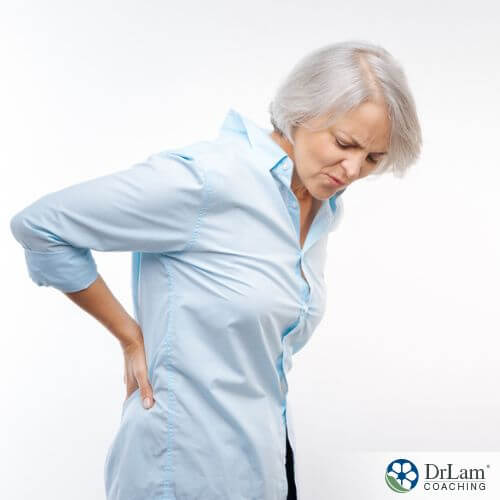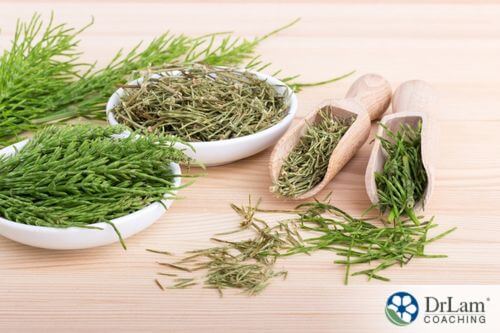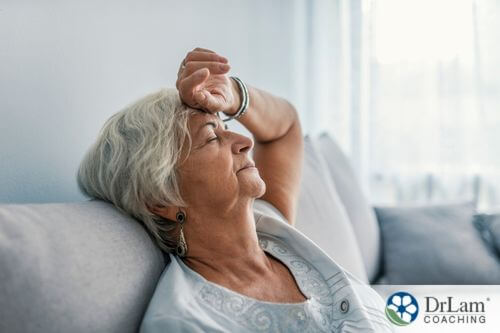An estimated ten million Americans experience osteoporosis with another 44 million at risk for developing this condition. But while it is common, it can lead to serious breaks and falls, and many are looking for ways to find relief. Several herbs for osteoporosis can help. This article will explore exactly what osteoporosis is, the different types of herbs for osteoporosis, and how they can provide relief.
This condition is when your bones become thin and weak. The literal meaning of osteoporosis is "porous bone." The main cause of osteoporosis is age, but other factors that can cause it are:

The key nutrients in bone health are calcium, along with magnesium, phosphorus, potassium, and vitamin D. These nutrients assist in the absorption of calcium. Other nutrients such as sodium can hinder the absorption of calcium if they are in excess.
Until the age of 30, absorption of calcium is increased and bone growth is greater than bone breakdown. However, after the age of 30, the absorption starts to decrease and bone breakdown becomes greater than bone growth.
Other factors that also contribute to the absorption of calcium are hormones. When females reach menopause, the change in hormones further decreases the absorption of calcium. This is one of the reasons why females are more at risk of developing osteoporosis than males.
There are multiple different natural remedies for osteoporosis, including:
There is also a range of supplements that can offer support to individuals with osteoporosis. This includes herbs for osteoporosis.
This herb is a popular Chinese herb that can help to assist with osteoporosis. Red sage contains salvianolic acid as well as other compounds that help to reduce inflammation and assist in bone health.
Research suggests that individuals with osteoporosis have an increase in free radicals. Free radicals are unstable molecules that are a result of bodily processes as well as stress. These molecules can cause damage to your body and play a role in the breakdown of bone. Salvianolic acid as well as the other compounds found in red sage are antioxidants. Antioxidants neutralize the free radicals in the body preventing further bone breakdown from free radicals.
Red sage also contains vitamin K which assists with the accumulation of calcium in your bones, increasing the density of the bone.
Research suggests that red sage can help to improve symptoms of more than 80% of individuals experiencing osteoporosis; however, more research with larger research groups is necessary.
Red sage is available in the form of a capsule, tincture, or tea. However, it does have side effects and should not be used for a long period. It also should not be taken during pregnancy or with some medications such as blood thinners.
This herb is part of the legume family and contains compounds similar to estrogens. Estrogen is a hormone that can potentially help to protect your bone. During menopause, estrogen decreases, decreasing the amount of protection on the bone. It is one of the reasons why menopause is one of the risk factors for osteoporosis. These estrogen-like compounds can help to potentially protect the bone and prevent a loss in bone density. However, there is limited research on this, and more research is necessary.
Red clover is available in the form of tea, tablets, capsules, and liquid. However, it can negatively interact with medications such as blood thinners.
 This herb thankfully is not from a horse but instead a tree that grows in North America, Asia, and the Middle East. It has been used for centuries for applications from healing wounds to relieving TB. Horsetail contains three antioxidants; quercetin, oleanolic acid, and ursolic acid. Studies suggest that these antioxidants not only help to reduce damage to the bone but also help to improve calcium absorption and can enhance bone growth.
This herb thankfully is not from a horse but instead a tree that grows in North America, Asia, and the Middle East. It has been used for centuries for applications from healing wounds to relieving TB. Horsetail contains three antioxidants; quercetin, oleanolic acid, and ursolic acid. Studies suggest that these antioxidants not only help to reduce damage to the bone but also help to improve calcium absorption and can enhance bone growth.
Another beneficial compound in horsetail is silica, a natural mineral. Horsetail is one of the plants with the highest amount of silica; up to 25% of its dry weight is silica. This could be why horsetail helps to enhance bone growth. Studies suggest that horsetail or other supplements containing silica can improve the density of the bone as well as its strength.
This supplement is available in capsules, tinctures, and dried form as well as liquid form. Horsetail is recommended for short-term use. Long-term use of horsetail has been associated with lower levels of thiamine. Its use is also not recommended during pregnancy as well as in medical conditions such as diabetes and kidney conditions.
This is a common herb in many household pantries. Whilst thyme is a great seasoning for some meals, it can also potentially help to assist in osteoporosis.
The most common forms of thyme are in fresh or dried form. However, it is also available as an oil or capsule. A study researching the effects of thyme found that a daily dose of 1000mg improved bone density more than a calcium and vitamin D supplement. Research also suggests that a combination of thyme, sage, and rosemary can result in greater bone density.
But though thyme is safe in smaller doses, there are side effects with larger doses of thyme, and it may not be safe for individuals with bleeding conditions to take this supplement.
This is another herb that is a staple in many households. The active ingredient in turmeric is curcumin which helps not only to reduce inflammation but also helps to improve bone density. Curcumin may also help to increase antioxidants in the body, helping to reduce further damage to the bones.
Whilst turmeric is most common in dried form, it is also available in capsule and liquid form. Side effects can occur after 12 months of use, and it should not be used with individuals with bleeding disorders and diabetes.
Adrenal Fatigue Syndrome (AFS) is a condition that arises due to chronic stress in the body. Your body can cope with short-term stress through the adrenal glands and NeuroEndoMetabolic (NEM) Stress Response system. The adrenal glands are the organs that play the largest part in managing stress by releasing stress hormones.
But in the case of long-term stress, your adrenal glands become depleted, and this can cause imbalances within the NEM system to occur. This results in AFS. The NEM system consists of six circuits; the Hormone, Bioenergetics, Detoxification, Neuroaffect, Inflammation, and Cardionomic circuit. The symptoms of AFS will depend on which circuit the imbalance is occurring in.
AFS can affect bone health through hormone imbalances and an increase in inflammation. With the hormones, AFS can increase the level of cortisol in the body, depleting the resources needed for adequate production of reproductive hormones, causing an imbalance. The increase in cortisol can also decrease calcium absorption in the body, resulting in a decline in bone health and increasing the risk of osteoporosis. An imbalance in reproductive hormones can reduce bone protection, increasing the risk of bone loss. AFS can also cause an increase in inflammation that reduces bone density.
With multiple factors reducing bone health and increasing the risk of osteoporosis, it is important to get support if you are currently experiencing AFS.
 Whilst there are multiple herbs for osteoporosis, and there is evidence that they can be effective in providing relief, there are some cautions of which to be aware. During AFS, your body can become sensitive and reactive to a variety of substances. This can result in your body reacting negatively and setting you back in your recovery from AFS.
Whilst there are multiple herbs for osteoporosis, and there is evidence that they can be effective in providing relief, there are some cautions of which to be aware. During AFS, your body can become sensitive and reactive to a variety of substances. This can result in your body reacting negatively and setting you back in your recovery from AFS.
With supplements, it's important to remember that the FDA does not regulate supplements including herbs for osteoporosis. This means that the safety and quality of the herbs are not guaranteed.
If you are currently experiencing osteoporosis as well as AFS, chat with your healthcare provider before you try any new products.
Osteoporosis is a common condition that affects many. Whilst this condition can have multiple effects on the body, there are natural remedies available that can help to provide relief. Herbs for osteoporosis are one of these remedies. These herbs have different modes of action to help provide relief. Some of these modes are:
If you would like to learn more about bone health and the factors that can affect it, the Dr. Lam team can assist. We offer a free** no obligation phone consultation at +1 (626) 571-1234 where we can discuss any health concerns you may have. Alternatively, you can send us a question through the Ask The Doctor system by clicking here.

Build Stronger Bones with OsteoForte! Defy Osteoporosis Naturally
While herbs for osteoporosis can provide relief and help to manage osteoporosis, they cannot reverse the condition. These herbs can still play an important role in reducing inflammation, preventing further bone loss, and increasing the density of the bone. This helps prevent osteoporosis from progressing.